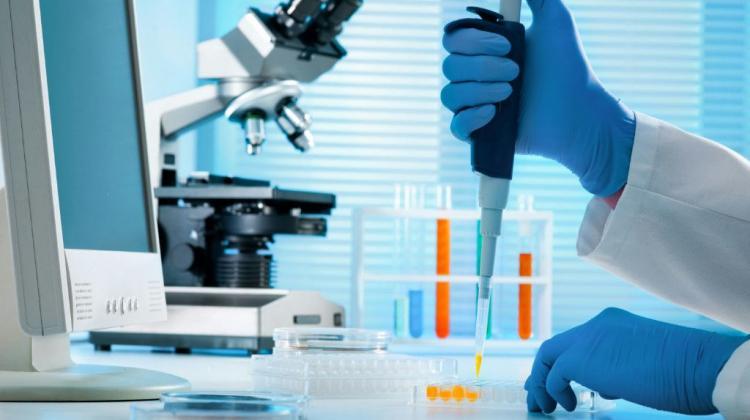Bacteria to support plants during drought
 Photo: Fotolia
Photo: Fotolia
Properly selected bacteria can help plants adapt to drought, according to joint research conducted by Polish biotechnologists and agrotechnicians. Recipients in the Gulf countries are already interested in the results of their work.
According to Dr. Magdalena Szczepańska from the Institute of Botany of the Polish Academy of Sciences, research on the use of biotechnology to reduce the effects of water scarcity is an example of using natural mechanisms of nature to shape the environment.
"The problem with water availability is already clearly visible. It applies not only to drinking water, but also to water that plants need to live. While it is true that some species are genetically plastic and can adapt to life in very difficult conditions, the problem is that this process takes a very long time and can be a result of various coincidences. Scientific research allows to shorten it and use it on a large scale, for example in food production" - the researcher believes.
One solutions to the problem of water shortages in crops is the use of properly selected bacteria that support plants. Joint work in this area is being carried out by scientists from Bio-Gen in Namysłów in cooperation with agrotechnicians and agricultural advisors of Procam Polska.
"Water shortages in large areas of Poland are a fact. Due to climate change, we are already dealing with the desertification of large areas. Knowing that irrigation will not be possible everywhere, we have approached the problem from a different angle, looking for a natural way to prepare plants for living in conditions of limited access to water" - explains Bio-Gen CEO Artur Kleina.
"In recent years we observe the increased effects of drought in our country and we see that the genetic potential of the plant itself and the current agrotechnology are insufficient. We went a step further, we searched and found a natural source of support for plants during water shortages" - adds Michał Król from Procam.
In the northern part of Poland, where the drought problem is systematically growing, field tests of plant cultivation supported by properly selected types of native bacteria have been carried out for two years. According to the results of the research, in the company of bacteria, plants develop larger root systems, thanks to which they cope better with the lack of rainfall.
"Microorganisms catch even small amounts of water from rainfall and are able to create a kind of a water bank in the soil, which is then used by plants living in symbiosis with them. Our task was to match appropriate bacteria and plants. The results of research in Poland turned out to be so good that large-scale cultivation tests with the bacteria we have cultured will be carried out by our partners in Arab countries" - explains Kleina.
In an interview with PAP, Prof. Marcin Filipecki from the Department of Plant Genetics, Breeding, and Biotechnology of the Warsaw University of Life Sciences emphasizes that although biotechnology is unlikely to be able to remedy all problems related to climate change, the joint efforts of scientists and agrotechnicians can be considered a step in the right direction. He points out that the problem of drought is an increasingly important subject of scientific research, which is then used by the industry.
"Our scientists from Poznań have developed a drought-resistant potato species. The Americans are introducing large-scale production of maize variety that can withstand water shortages. These are also examples of using the mechanisms of nature to increase the natural resistance of plants to water shortages. Climate changes are very dynamic and cause the need to look for solutions in many directions, also in the field of biotechnology. The first users are rich countries that can afford research and implementation of results on an industrial scale, but our food producers do not shy away from scientific innovations either, especially when economic arguments support them" - the researcher believes. (PAP)
Author: Marek Szczepanik
masz/ pad/ jjj/ kap/
tr. RL
Przed dodaniem komentarza prosimy o zapoznanie z Regulaminem forum serwisu Nauka w Polsce.













